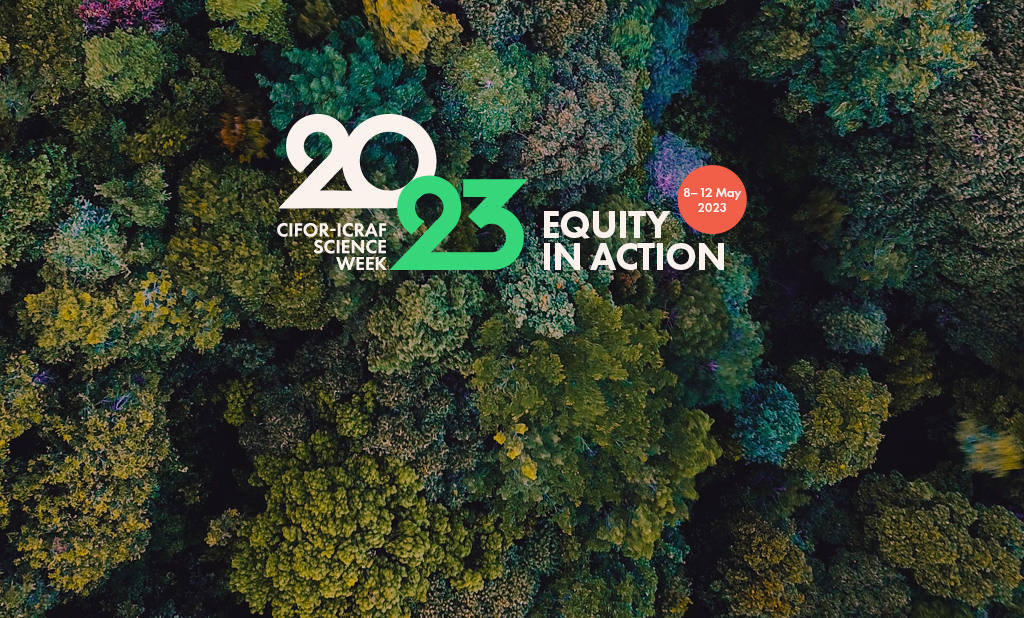
8 May 2023 – When women’s voices were ignored during community meetings over water access in southern Zambia, in favour of livestock farmers, the women decided to boycott the decision and continued to draw from their preferred water points.
That demonstrates both the power and also the limits of multistakeholder fora, and underscores why potential limitations must be countered through well-organized multistakeholder platforms that foster equity and trust and lead to better landscape governance.
These and related research findings were outlined by members of the Collaborating to Operationalize Landscape Approaches for Nature, Development, and Sustainability (COLANDS) initiative as they updated their work in three countries – Ghana, Indonesia and Zambia – during CIFOR-ICRAF Science Week in May 2023.
COLANDS is facilitating multistakeholder dialogue to benefit actors across multiple sectors and decision-making scales, and although the concept sounds straightforward, in practice, it is far from easy, said team leader James Reed, CIFOR scientist.
“We must challenge the idea that stakeholder engagement automatically leads to good outcomes,” said Reed, in the opening the COLANDS session.
That point was underscored by four COLANDS PhD candidates whose work aims to link research, policy, and practice in various landscapes.
Unequal power structures, sometimes hidden, lead to persistent unequal access to natural resources, said Freddie Siangulube, whose research is in the Kaloma district of southern Zambia.
“It is often assumed that equitable participation and collective engagement of various stakeholders in decision-making will improve legitimacy, enhance public acceptability and empower vulnerable groups,” said Siangulube, a PhD candidate at the University of Amsterdam.
“However, inequity and power imbalances in natural resource governance remain a significant stumbling block to achieving equitable and inclusive landscape governance.”
That can be countered through Integrated Landscape Approaches (ILAs) that utilize tools to monitor power imbalances and their impacts, said Siangulube.
Traditional leaders in Kalomo have considerable influence over access to land, forest and water resources, and livestock farmers were perceived to have considerable influence on grazing and pasture management. They exercised that influence during a water shortage, when participants at community meetings agreed that cattle should have priority at more accessible water points, forcing women to walk considerably further for water.
In response, women who require access to water for their families had to resort to boycotting those water resource decisions in order to be heard, Siangulube noted.
Questions of what voices are heard, whose knowledge is used, and who is marginalized are key to understanding how power is exercised, said Malaika Yanou, a University of Amsterdam PhD candidate.
Communities in southern Zambia rely on local knowledge to manage resources including land, forests, and water, demonstrating why it’s essential to understand how this knowledge and local practices contribute to sustainable natural resource management.
“Women are especially important knowledge-holders for land management, agriculture practices, and tree conservation,” said Yanou. Evidence-based policy that incorporates such local knowledge and ensures community voices are integrated within decision-making processes provides potential for more inclusive landscape governance and improved conservation outcomes.
Yanou used ‘photovoice’ research methods – recording voices and images during walking interviews with smallholder farmers and villagers – to examine how local knowledge and practices contribute to conservation practices in and around Kalomo Hills Forest Reserve. These methods revealed practices relevant to ILA implementation and social-ecological dynamics, including conservation strategies, taboos and beliefs, sacred landscapes, livelihood traditions, and climate indicators.
The community-based natural resource management areas (CREMA) system in Ghana’s Western Wildlife Corridor was designed to conserve biodiversity and enable safe passage of wildlife from Burkina Faso, while managing resources amid conflicts within the system. But questions are being raised about the inclusiveness of its decision-making processes, said University of Amsterdam PhD candidate Eric Bayala.
He interviewed local residents to learn what stops them from feeling included in decision-making bodies. Some residents said they felt all social groups weren’t welcome to participate, some questioned the legitimacy of local leadership, and whether genuine community ownership existed; some said transparency in governance and equity was lacking, as well as trust between actors and accountability. His ongoing research is considering whether applying ILA principles can help to overcome such challenges.
Polycentric governance and legal pluralism – where multiple rules apply in the same jurisdiction – as well as numerous normative systems are delicately balanced in Indonesia’s Kapuas Hulu region, said Augusta Anandi, University of Amsterdam PhD candidate reflecting on her research there.
Interconnections can be positive and mutually supportive, such as synergies among co-existing legal systems; for example, co-management between Betung Kerihun National Park and community-based organizations, including community eco-tourism in Kaban Mayas and an association of honey farmers.
However, the contrary also occurs, where different legal systems in the same jurisdiction ignore each other; for example, a fishers’ association develops its own management rules, ignoring state regulation.
But strong and affirmative relationships leading to mutual support are on the rise, said Anandi. Benefits from polycentric governance and legal pluralism include power sharing with remote communities, improved law enforcement, monitoring, protection of natural resources, and potential for long-term partnerships in land use and resource governance.
And that contributes to stronger landscape goverrance and biodiversity conservation.
“Facilitation of a forum of dialogue across sector and governance levels is essential for achieving mutual support between different legal systems and a key role for integrated landscape approaches,” said Anandi.
——
COLANDS is part of the International Climate Initiative (IKI) and is funded by the German Federal Ministry for the Environment, Nature Conservation and Nuclear Safety (BMU).
PhD research that is part of COLANDS is hosted at the Institute for Social Science Research of the University of Amsterdam and the University of British Columbia.For more information on this topic, please contact James Reed at j.reed@cifor-icraf.or




